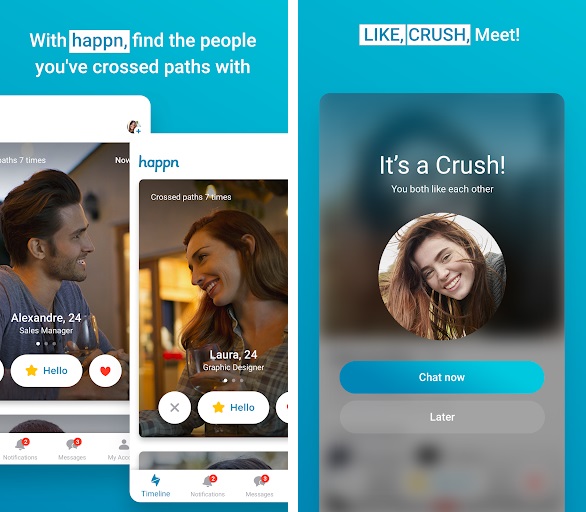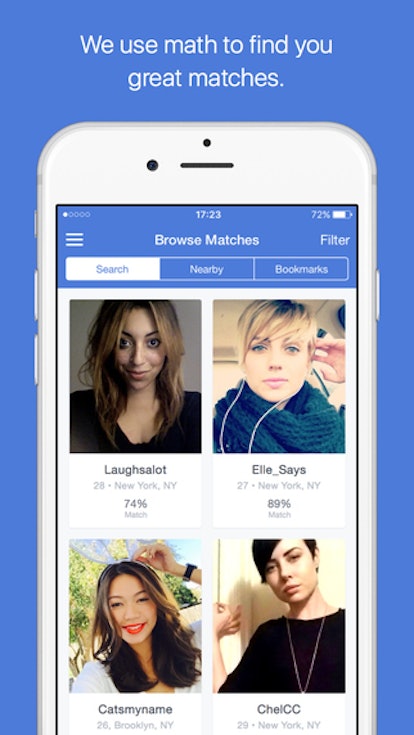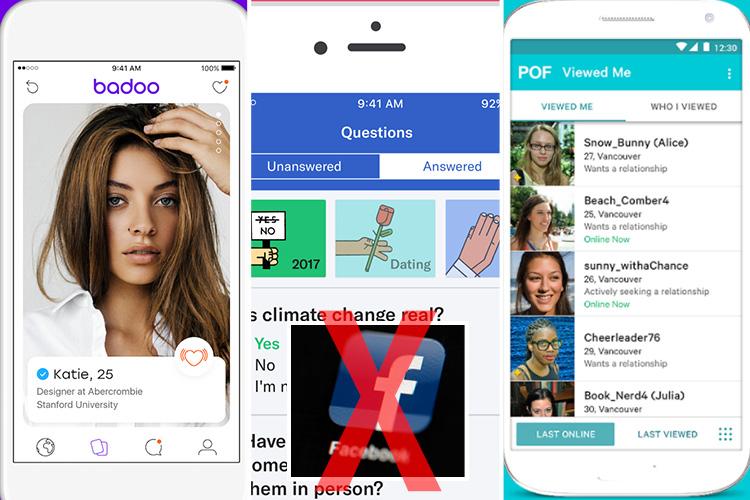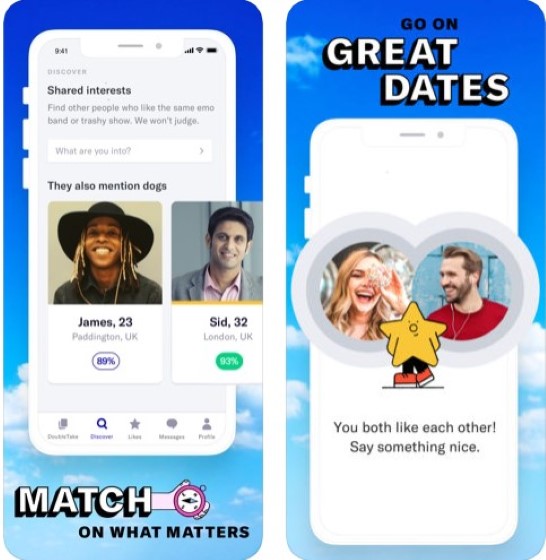So you’re tired of the constant invasion of your privacy on Facebook, but still want to meet new people online? Look no further! This article introduces an app that functions just like Tinder, but without the need for a Facebook account. Say goodbye to the worry of your personal information being shared without your consent, and say hello to a simplified and more discreet way of finding potential matches. With this app, you can swipe to your heart’s content, all while keeping your online dating life separate from your Facebook presence. It’s time to take control of your privacy and still enjoy the thrill of online dating!

What is Tinder?
Overview of Tinder
Tinder is a popular dating app that has gained immense popularity worldwide. It revolutionized the way people meet and connect by utilizing a simple swipe-based interface. Launched in 2012, Tinder quickly became the go-to platform for individuals looking for casual dates, hookups, or even long-term relationships.
How Tinder works
Tinder operates on a basic premise: it allows users to browse through profiles of other users and make decisions based on whether they are interested or not. By swiping right, you indicate your interest in someone’s profile, and if they do the same for you, it’s a match! Once matched, users can start messaging each other within the app and take the conversation further.
Tinder creates a fun and engaging environment, where users are presented with a series of profiles, complete with photos, brief descriptions, and mutual interests. This streamlined and user-friendly approach has contributed to its widespread popularity.
The role of Facebook in Tinder
Initially, Tinder relied heavily on Facebook for its authentication and data gathering processes. It required users to have a Facebook account in order to create a Tinder profile. This integration with Facebook provided Tinder with access to a user’s basic information, such as name, age, photos, and interests, making it easier to create a profile.
However, over time, Tinder introduced alternative login methods, like phone number verification, allowing users to create profiles without Facebook. This shift was driven by privacy concerns and user feedback, as many individuals were hesitant to link their dating lives with their Facebook accounts.
Privacy and Security Concerns
Data sharing concerns on Tinder
One of the main concerns with using Tinder, especially when it was closely tied to Facebook, was the potential sharing and misuse of personal data. Tinder’s integration with Facebook meant that certain information from a user’s Facebook profile could be accessed by the app, raising questions about privacy and security.
While Tinder has implemented measures to protect user data, such as encrypting messages and limiting the amount of personal information shared, some users still have reservations about the potential risks associated with using the app.
Benefits of using an app without Facebook integration
The emergence of dating apps that don’t require Facebook integration offers several advantages to users concerned about their privacy. By eliminating the need to link a dating profile with a Facebook account, users can maintain a higher level of anonymity and control over their personal information.
Moreover, apps that don’t rely on Facebook are not subject to the same data-sharing agreements and potential vulnerabilities as those that do. This separation ensures that user data is kept separate and reduces the risks of data misuse or unauthorized access.
User feedback on privacy issues
While Tinder has made efforts to address privacy concerns, user feedback on these issues has been informative and crucial for the development of safer and more privacy-centric dating apps. Many users have expressed the desire for alternative login options and increased control over their data.
This feedback has not only fueled the push for dating apps with stronger privacy measures but has also prompted a more transparent approach to data collection and sharing practices by popular dating platforms.
Alternatives to Tinder
Introduction to alternative dating apps
As the demand for dating apps without Facebook integration grows, numerous alternatives to Tinder have emerged in the market. These apps aim to provide a similar user experience while offering greater privacy and data protection.
Apps that don’t require Facebook
A considerable number of dating apps now offer the option for users to create profiles without linking their Facebook accounts. Instead, these apps may employ other methods of identity verification, such as email verification or phone number verification.
By removing the reliance on Facebook, these apps allow users to create profiles with greater anonymity and reduce their digital footprint.
Comparison of popular non-Facebook dating apps
To help users make informed decisions, it’s essential to compare and contrast different non-Facebook dating apps. Several popular options include Bumble, OkCupid, Zoosk, and Hinge.
Bumble, for example, puts women in control by allowing them to initiate conversations, while OkCupid employs a comprehensive matching algorithm to connect users based on their personalities and interests. Each app offers unique features and caters to different demographics, making it crucial for users to explore and find the one that best suits their needs.
Benefits of Using Apps Without Facebook
Maintaining privacy and anonymity
Perhaps the most significant advantage of using dating apps without Facebook integration is the ability to maintain a higher level of privacy and anonymity. By not linking a Facebook account, users can prevent their dating activities from being directly linked to their social media profiles. This separation provides additional protection and peace of mind.
Avoiding data misuse
Data misuse has become a prevalent concern in the digital age, where even minor breaches can have severe consequences. By using apps that don’t require Facebook, users can reduce the risk of their personal information being collected, shared, or potentially misused. This control over their data empowers users to enjoy the dating experience without compromising their privacy.
Control over personal information
Apps without Facebook integration offer users greater control over the personal information they choose to share. Unlike platforms that rely on Facebook, these apps do not automatically access or display a user’s full name, age, or profile picture. Users can choose what information they provide, allowing them to present themselves in a manner that aligns with their comfort levels.
Reducing social media dependencies
For those who prefer to keep their dating lives separate from their social media presence, using apps without Facebook integration is the ideal solution. By eliminating the need to connect or sync with social media accounts, users can have a distinct space dedicated solely to their dating experience, keeping their social media profiles unaffected.
Improved user experience
The benefits of using apps without Facebook extend beyond privacy concerns. These platforms often offer unique features and user experiences tailored specifically for those seeking more meaningful connections. By focusing on fostering genuine interactions and reducing the reliance on superficial factors, such as profile pictures, these apps provide a more enriching and fulfilling dating experience.

Creating a Tinder-like App Without Facebook
Understanding the necessary features
To create a Tinder-like app without Facebook, it is essential to understand the key features that make Tinder popular. These include a streamlined profile creation process, a swipe-based interface, and messaging functionality. Additionally, incorporating matching algorithms and user preferences can enhance the overall user experience.
Developing a user-friendly interface
A user-friendly and visually appealing interface is crucial for any dating app. Clear navigation, intuitive design, and straightforward usability contribute to an enjoyable user experience. By creating a seamless and engaging interface, users are more likely to spend more time on the app and have a positive impression of the overall service.
Implementing an alternative login system
To negate the need for Facebook integration, alternative login systems must be implemented. Options such as email verification, phone number verification, or even unique usernames can provide the necessary authentication while maintaining user privacy. Priority should be placed on ensuring a smooth and efficient login process that doesn’t compromise user security.
Ensuring data protection
Data protection should be a top priority when developing an app without Facebook integration. Implementing robust security measures, such as data encryption, secure servers, and multi-factor authentication, can protect user data from unauthorized access. Regular security audits and updates must also be conducted to ensure ongoing data protection.
User verification methods
To maintain the integrity of the platform and prevent the creation of fake profiles, user verification methods should be implemented. These can include photo verification, social media cross-referencing, or integration with other trusted identity verification services. User verification builds trust within the community, ensuring a safer and more reliable dating experience.
Promoting and Growing the App
Developing a marketing strategy
A comprehensive marketing strategy is crucial for promoting and growing a Tinder-like app without Facebook. This strategy should include effective social media marketing, app store optimization, search engine optimization, influencer partnerships, and online advertising. The goal is to raise awareness about the app and attract a target audience interested in dating without Facebook integration.
Targeting the right audience
Identifying and targeting the right audience is vital for the success of the app. Conducting market research and understanding the demographics and preferences of potential users can help tailor the marketing efforts to reach the desired audience. By reaching individuals who value privacy and data protection, the app has a better chance of attracting and retaining loyal users.
Building a user base
Building a strong user base is crucial for the long-term viability of the app. This can be achieved through targeted advertising, referral programs, partnerships with influencers, and collaborations with other non-Facebook dating apps. Creating incentives for users to invite their friends and providing a seamless onboarding experience can help boost user acquisition and retention.
Encouraging user engagement
Engaging users and encouraging ongoing interaction within the app is key to maintaining an active and vibrant user base. This can be achieved through various means, such as gamifying the experience, introducing interactive features, hosting virtual events, or facilitating meaningful conversations. The emphasis should be on creating a community where users feel connected and invested in the app.
Leveraging social media
Although the app itself may not rely on Facebook integration, leveraging other social media platforms can still be beneficial for promoting the app. Engaging with users on platforms like Instagram, Twitter, or TikTok can help build brand recognition, drive traffic to the app, and encourage user-generated content. By utilizing the power of social media, the app can reach a broader audience and foster brand loyalty.

Case Studies and Success Stories
Examples of apps without Facebook integration
Several successful dating apps have already achieved significant success without relying on Facebook integration. For example, Bumble has amassed a large user base by focusing on empowering women and creating a safe and inclusive platform. Hinge, another popular app, emphasizes building deeper connections through meaningful conversations.
These examples demonstrate that there is a viable market and demand for dating apps that prioritize privacy and user experience.
User testimonials and reviews
User testimonials and reviews provide valuable insights into the user experience and overall satisfaction with non-Facebook dating apps. Positive feedback from users who have found meaningful connections or appreciated the enhanced privacy features can help build trust among potential users. Publishing these testimonials on the app’s website or through targeted marketing campaigns can be influential in attracting new users.
Case studies of successful apps
In-depth case studies that analyze the success stories of apps without Facebook integration can offer valuable insights for app developers. These studies may explore the strategies implemented, challenges faced, and key factors contributing to the app’s growth and popularity. By studying these success stories, developers can glean insights and apply them to their own app development and marketing efforts.
Future Trends in Non-Facebook Dating Apps
Emerging technologies in the dating app industry
The dating app sector continues to evolve, with new technologies shaping the future of online dating. Artificial intelligence, augmented reality, and virtual reality are among the emerging technologies that have the potential to enhance the user experience and facilitate more meaningful connections. By staying up to date with these advancements, app developers can position themselves at the forefront of innovation.
Innovative features and functionalities
To stay competitive, non-Facebook dating apps must continuously innovate and introduce unique features and functionalities. These can include video profiles, interactive games, compatibility quizzes, or even offline meetups facilitated by the app. By offering something different, these apps can attract users who are seeking novel and engaging experiences.
Implications for the future of dating
As non-Facebook dating apps continue to gain traction, there are implications for the future of dating. These apps challenge the traditional paradigm of online dating by emphasizing privacy, security, and genuine connections over superficial factors. This shift in focus may mold the future landscape of dating apps, encouraging more transparency and user-centric design across the industry.

Conclusion
Summary of benefits
Choosing a dating app without Facebook integration offers numerous benefits. By maintaining privacy, avoiding data misuse, controlling personal information, reducing social media dependencies, and enjoying an improved user experience, users can feel more confident and secure in their online dating journeys.
Considerations for app developers
For app developers looking to create a Tinder-like app without Facebook integration, it’s essential to prioritize user privacy and data protection. By implementing alternative login systems, robust security measures, and user verification methods, developers can engender trust and foster a positive user experience.
Final thoughts
The availability of dating apps without Facebook integration provides a welcome alternative for individuals seeking a more private and secure online dating experience. With careful consideration of user needs, targeted marketing strategies, and continuous innovation, these apps have the potential to shape the future of the dating app industry.
